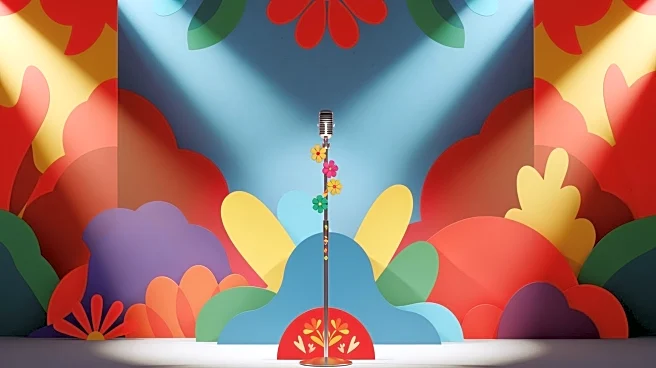What's Happening?
Non-sleep deep rest (NSDR) is gaining attention as a technique that may offer benefits similar to power naps without inducing sleep. Coined by Andrew Huberman, PhD, NSDR includes practices like hypnosis,
yoga nidra, and meditation, promoting rest between sleep and wakefulness. A study found that participants using NSDR showed improvements in cognitive performance, mood, and stress reduction, though not in sleepiness. While NSDR is not widely recommended by sleep experts, it is suggested as a tool for relaxation and avoiding post-nap grogginess. The practice involves guided recordings that lead users through deep breathing and visualization exercises.
Why It's Important?
NSDR presents a potential solution for individuals seeking to reduce reliance on caffeine and avoid the negative effects of naps. By promoting relaxation and focus, NSDR can enhance productivity and mental clarity, offering a practical tool for managing daily energy levels. The technique's ability to prevent sleep inertia makes it appealing for those who struggle with post-nap disorientation. As interest in mindfulness and mental health grows, NSDR could become a valuable addition to wellness routines, providing a structured approach to achieving rest and focus without sleep.
What's Next?
The popularity of NSDR may lead to increased availability of guided recordings and resources for individuals interested in incorporating the practice into their daily routines. As more people explore NSDR, further research could be conducted to better understand its benefits and limitations. The development of apps and online platforms offering NSDR sessions could facilitate access and encourage widespread adoption. Additionally, the integration of NSDR into workplace wellness programs may provide employees with tools to enhance focus and productivity during work hours.
Beyond the Headlines
The emergence of NSDR highlights the growing interest in non-traditional methods for managing energy and focus. As individuals seek alternatives to caffeine and naps, practices like NSDR offer a promising approach to achieving mental clarity and relaxation. The technique's emphasis on guided visualization and breathing exercises aligns with broader trends in mindfulness and mental health, suggesting a shift towards holistic approaches to well-being. As NSDR gains traction, it may contribute to a broader cultural acceptance of rest and relaxation as essential components of a balanced lifestyle.









